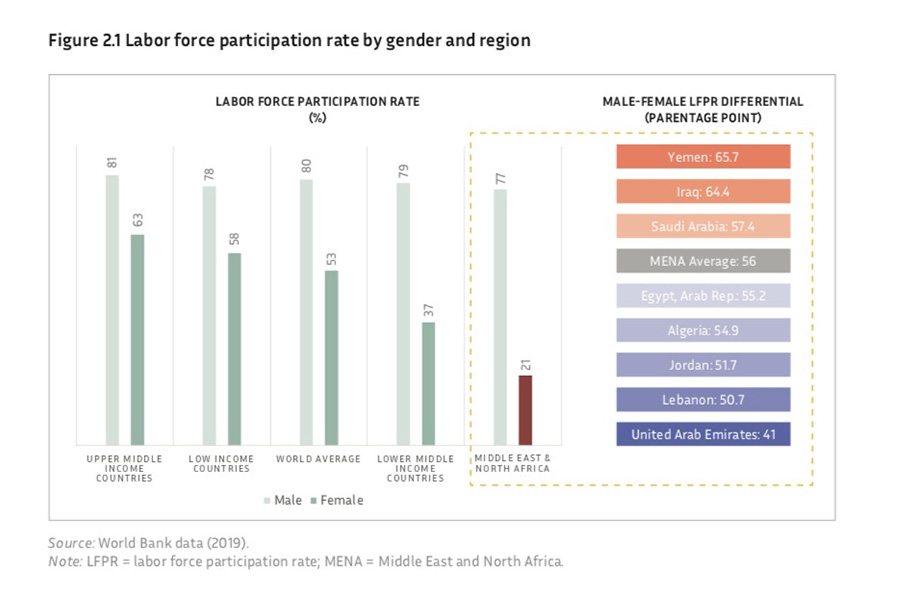The study – titled “Toward More and Better Jobs for Women in Energy” – was conducted by the bank’s Energy Sector Management Programme and looked at selected countries in the region, including Egypt.
In Egypt, women’s participation in the energy sector is below 10 percent on average.
It stressed that gender inequality in MENA is a serious challenge constraining the region’s human, social, and economic development.
“Despite the significant progress made in closing the gender gap in the areas of education (especially university enrollment) and health, stark disparities remain in women’s access to economic opportunities (such as employment and entrepreneurship), and in their voice and agency (World Bank 2017). According to global indicators, the region’s key labour market and enterprise metrics show the widest gender gaps, and its performance on economic indicators lags far behind that of most regions (except for South Asia on some metrics),” said the study.
According to the study, the global energy market is projected to grow 44 percent by 2050 with 80 percent of the jobs being in renewables compared to 11 percent in fossil fuels and five percent in nuclear energy.
In this respect, a 2021 analysis done by the International Renewable Energy Agency (IRENA) found that global renewable energy jobs had edged up by 71 percent in 2020 to hit 12 million jobs in 2020, up from 7.3 million in 2012.
“Trends in the MENA region reveal similar opportunities for employment growth, with over $100 billion invested in renewables projects in 2021 alone. While some job profiles will likely remain the same (that of marketing and administrative personnel, engineers, professional experts, technicians, and unskilled workers), the trades in greatest demand are likely to change. For example, jobs in the oil and gas sector are dominated by tradespeople such as pipelayers, plumbers, pipefitters or steamfitters, and construction equipment operators, while positions in renewables are dominated by solar PV installers, wireman, roofers, and electricians,” the study explained.
It expected a growth in demand for skills across the region going forward, especially in in telecommunications, computer science, and artificial intelligence as the sector diversifies and modernises, which leave significant room for empowerment of women in the sector through employment.

Based on the latest available labour force surveys in Egypt, Jordan, Iraq, Lebanon and Saudi Arabia, women’s participation in the energy sector is below 10 percent on average.
The study shed light on the general factors contributes to poor labour market outcomes and limited entrepreneurship among women in the MENA; these include women’s lack of access to education and equal opportunities for skills development, as well as limited guidance for young women in the public education system, which hampers their transition from education in the science, technology, engineering and mathematics (STEM) fields to work opportunities.
Factors also include the lack of jobs and a skills mismatch attributed to the disconnect between what is taught and what employers need, recruitment opportunities that are largely centralised and do not target women, the lack of role models and access to career advice in the workforce, legal restrictions that reinforce gender stereotypes in the sector and occupational segregation.
Moreover, there is difficulties in women’s advancement owing to biases, inequitable workplace conditions, and pervasive wage inequality, along with concerns surrounding safe mobility for women, particularly while traveling for on-site work, besides social and normative constraints that women face because of deeply entrenched patriarchal belief systems that hinder their success in the sector, according to the study.

Short link: